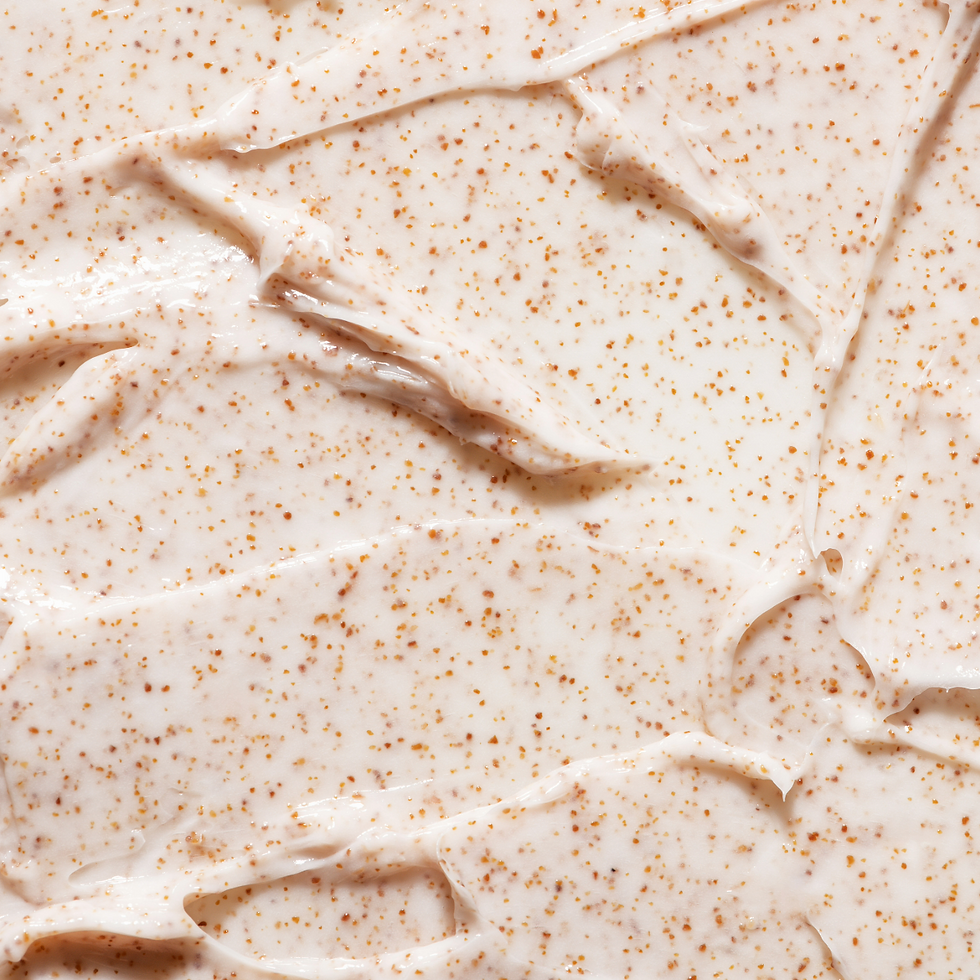What is the difference between physical and chemical exfoliants?
- Beauty&Beyond Global Experts
- Feb 22, 2024
- 2 min read
Exfoliation is a vital step in any skincare routine, helping to slough away dead skin cells, unclog pores, and reveal smoother, brighter skin underneath. But with so many exfoliating products on the market, how do you know which type is right for you? In this informative guide, we'll explore the differences between physical and chemical exfoliants, so you can choose the best option for your skin type and concerns.

1. Understanding Physical Exfoliants:
Physical exfoliants, also known as mechanical exfoliants, work by physically scrubbing away dead skin cells using abrasive particles or tools. "Physical exfoliants include scrubs, brushes, sponges, and devices like cleansing brushes or facial scrubbers," explains esthetician Sarah Kim. "They provide immediate gratification by instantly smoothing and refreshing the skin's surface."
2. Understanding Chemical Exfoliants:
Chemical exfoliants, on the other hand, use chemical ingredients like alpha hydroxy acids (AHAs), beta hydroxy acids (BHAs), or enzymes to dissolve dead skin cells and promote cell turnover. "Chemical exfoliants penetrate deeper into the skin, targeting the bonds that hold dead skin cells together," says dermatologist Dr. Emily Lee.
"They're ideal for addressing a wide range of skin concerns, from acne and hyperpigmentation to fine lines and dullness."
3. Key Differences Between Physical and Chemical Exfoliants:
a) Mechanism of Action:
Physical exfoliants physically remove dead skin cells through friction, while chemical exfoliants dissolve them using chemical ingredients.
b) Depth of Exfoliation:
Chemical exfoliants penetrate deeper into the skin than physical exfoliants, targeting cellular turnover at a molecular level.
c) Skin Sensitivity:
Chemical exfoliants may be gentler on the skin than physical exfoliants, especially for those with sensitive or easily irritated skin.
d) Targeted Concerns:
Chemical exfoliants are more versatile and can address a wider range of skincare concerns, including acne, hyperpigmentation, and signs of aging.
4. Choosing the Right Exfoliant for Your Skin:
When choosing between physical and chemical exfoliants, consider your skin type, sensitivity, and specific skincare concerns. "If you have sensitive or reactive skin, opt for a gentle chemical exfoliant containing AHAs like glycolic acid or lactic acid," suggests skincare specialist Lisa Nguyen. "For oily or acne-prone skin, BHAs like salicylic acid are particularly effective at unclogging pores and preventing breakouts."
Conclusion
Whether you prefer the immediate gratification of a physical scrub or the long-term benefits of a chemical exfoliant, incorporating exfoliation into your skincare routine is essential for maintaining healthy, radiant skin. By understanding the differences between physical and chemical exfoliants and choosing the right option for your skin type and concerns, you can achieve a smoother, brighter complexion that glows from within.
.png)


Comments